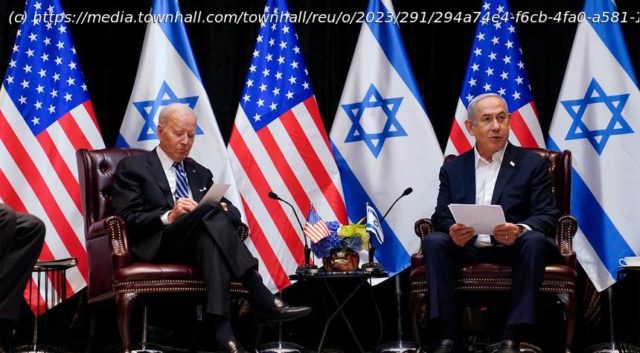As generally expected, Israel’s war and security cabinets approved a deal with Hamas brokered by Qatar to pause the war and exchange hostages for Palestinian prisoners. The deal promises to exch.
As generally expected, Israel’s war and security cabinets approved a deal with Hamas brokered by Qatar to pause the war and exchange hostages for Palestinian prisoners. The deal promises to exchange as many as 80 kidnapped victims of the October 7th massacre for 150 security-related convicts, but only women and minors and not including any captured Hamas operatives in this war.
Starting at 10 am tomorrow in Jerusalem — 3 am ET — the first 50 hostages will get released in stages over four days of the “pause.” Another 30 could be released in a potential second four-day “pause,” if it holds:
Some 40 children and 13 mothers are held hostage, but not all of them will be included in the initial group slated for release because Hamas claims that it does not know the location of all the hostages, including the children.
It’s expected that the initial release will include 30 children, eight mothers, and 12 other women, including the elderly whose lives are at risk. …
Israel will in exchange release some 150 Palestinian women and minors held in its jails on security related offenses, but none of them would be those who had directly been involved in terror attacks with fatalities.
There is a possibility for the release of an additional 30 hostages held in Gaza should the pause in the fighting be extended for up to another four days.
“The release of every additional ten hostages will result in one additional day in the pause,” the government stated.
That open-ended construct could turn out to be a real problem for the IDF, which will have to sit still for several days in hostile territory while the exchanges play out. Each additional day allows Hamas to craft ambushes when they decide to stop “pausing.” It also gives Hamas an opportunity to stanch the intel bleed coming from Gazans who have decided to save themselves from Hamas’ grip by cooperating with IDF forces. If the IDF has to sit while Hamas gets to decide when, where, and how to end the exchanges, that’s a very dangerous position to be in.
So why did Israel take the deal? The unity government certainly had political pressure on them to get the hostages out from home. But as the New York Times reports, the White House is claiming credit for the deal, based on Joe Biden’s heavy political pressure on Israel to back down from its initial position for all hostages in exchange for any pause and aid:
Israel’s acceptance of the terms of a hostage deal with Hamas late on Tuesday reflected the intense pressure brought by the Biden administration to reach an agreement that would free some of those held by the armed group and produce potential longer-term opportunities to de-escalate the conflict.






